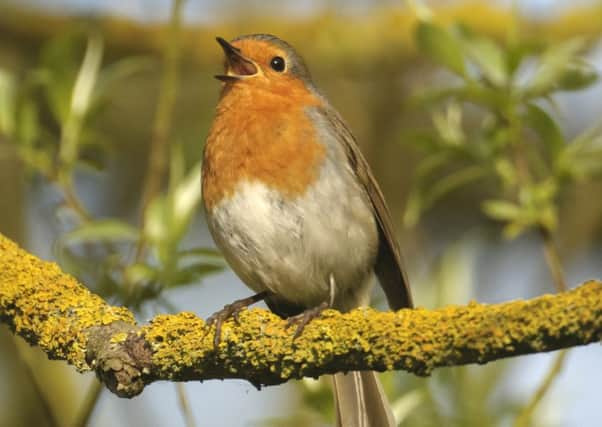Queen’s University: Birds under threat from man-made noise


The university believes this could eventually lead to a severe decline in bird numbers.
In spring, birds use song to show aggressiveness and to secure territory for nesting and breeding, but this is becoming tougher due to noisy conditions created by humans, QUB found.
Advertisement
Hide AdAdvertisement
Hide AdDr Gareth Arnott, senior lecturer and researcher from the Institute for Global Food Security at QUB, found that background noise can mask crucial information.


“Singing is one of the most common ways birds advertise that a territory belongs to them, and birds will perch near the edge of their territory to broadcast their claim to the maximum range,” he said.
“A strong, vibrant song will help defend a territory from intruders and attract a mate.”
However, Dr Arnott and his team discovered that man-made noise is disrupting birds from being able to hear and understand each other clearly.
Advertisement
Hide AdAdvertisement
Hide Ad“We found that bird song structure can communicate aggressive intent, enabling birds to assess their opponent, but human-made noise can disrupt this crucial information passed between them by masking the complexity of their songs used for acquiring resources, such as territory and space for nesting.
“As a result, the birds receive incomplete information on their opponent’s intent and do not appropriately adjust their response.”
In the experiment, the team used recordings of robins singing to stimulate responses from birds which were nearby territory holders.
The behaviour and vocal responses to the recordings were then recorded for analysis. The researchers found that the more complex a song, the more aggressive the intent and the more aggressive the response to the threat. However, the process was also clearly disrupted by the presence of noise.
Advertisement
Hide AdAdvertisement
Hide AdThe study also shows that bird song is crucial to bird reproduction and that noise levels can have important implications for wildlife protection.
Dr Arnott added: “The study is evidence that human-made noise pollution impacts animal habitats and directly influences their ability to communicate properly, which may have implications for survival and population numbers for birds.
“This must be further investigated in order to protect our valued biodiversity.”
The research was funded by QUB for a Masters in Science Zoology thesis by James Wilson, supported by Dr Kyriacos Kareklas, Dr Hansjoerg Kunc and Dr Gareth Arnott.